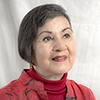The Innocents: A Filipina WWII Oral History
by Diane Rodill (Philippines 1985–87)
Author’s Notes: Pseudonyms were used for the Filipino nationals below for privacy purposes. Mr. “Navarro” was my host-country father.
Introduction
I still weep when I reread the oral history notes I recorded 30 years ago.
As a child in the 1940s, in a darkened cinema, I watched shadowy newsreels of World War II raging in Europe. I was incapable of comprehending the carnage in the Pacific. Today, Laura Hillenbrand’s Unbroken has unveiled the cruelty faced by U.S. and Filipino POWs under Japanese occupation. But few have recorded the cruelty, without munitions, imposed on the innocents in my father’s native country.
In 1985, I fulfilled a 25-year dream of serving as a PCV in the Philippines. I was further blessed to become part of a wonderful host country family, the Navarros, in Irosin, Sorsogon. Since I lived and worked at the local level, I was close to the community, and gradually earned their friendship and love. Trust, my pidgin Bicol, and possibly, mestiza heritage made me privy to stories that might otherwise never be shared with a Cana. The vignette below reflects but one of thousands of horrors thrust on Filipino nationals in World War II (and that continue today globally). Lest we forget . . .
•
An Oral History
Recorded Saturday, October 1, 1986, in Irosin, Sorsogon, Philippines
Today I heard the story of the 40-long years’ effects of the war in the Philippines.
Mr. Navarro’s 65-year-old sister, Julieta, was visiting to attend the funeral of her elder sister, Esperanza. During merienda, Julieta told me of her first pregnancy during the Japanese occupation.
She and her husband had been driven from their home in Sorsogon to the mountains. Throughout the pregnancy, she had little or no protein, only carbohydrates.
In the mountains, at the naïve age of 25 and without the benefit of even a midwife or hilot, she began three days of labor — no medicines, hospital, or physician.
After surviving the horrible labor, she had no milk to feed her infant, who was clearly abnormal. The child did not stand upright until age 10, and today at age 40 he is paralyzed on half his body, and still suffers epilepsy. His mother continues the vigil as his nurse all these years.
The women and children were the innocent victims of war . . .
 Diane Rodill is an emerging literary writer. She received her PhD from Temple University. Her work has appeared in Filipino American National Historical Society journals and bulletins of the Filipino American Historical Society. She has delivered presentations throughout the U.S. Her pending historical biography A Filipino Rascal is her first non-fiction work. She plans a companion curriculum and a children’s chapbook. She received a 2014 4Culture grant, and she is a 2016 Artist Trust Literary Edge alumna. Diane lives in Seattle with her husband Paul Lewis, and she is available for readings. Contact: dianerodill@gmail.com
Diane Rodill is an emerging literary writer. She received her PhD from Temple University. Her work has appeared in Filipino American National Historical Society journals and bulletins of the Filipino American Historical Society. She has delivered presentations throughout the U.S. Her pending historical biography A Filipino Rascal is her first non-fiction work. She plans a companion curriculum and a children’s chapbook. She received a 2014 4Culture grant, and she is a 2016 Artist Trust Literary Edge alumna. Diane lives in Seattle with her husband Paul Lewis, and she is available for readings. Contact: dianerodill@gmail.com
No comments yet.
Add your comment